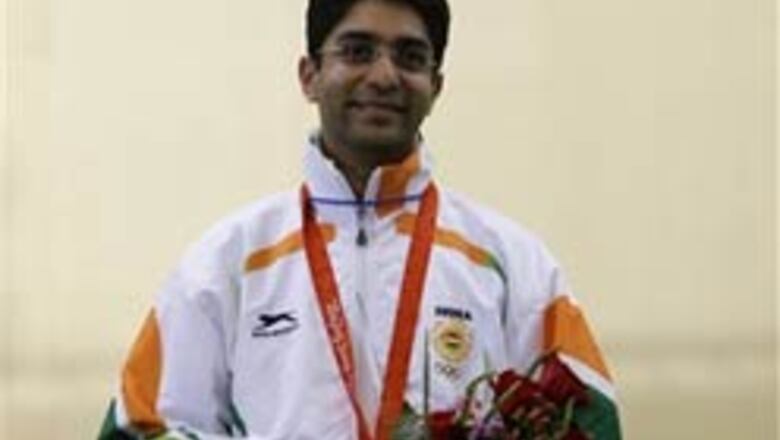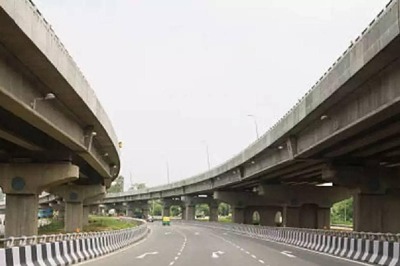
views
Beijing: It took a wealthy young man with a personal shooting range at home, two sons of bus drivers -- and the BBC -- to fashion India's most successful Olympics ever.
A gold and two bronzes will hardly create a ripple on the medals tally, but it marked a giant leap forward for Olympic sports in a country that had eyes and ears only for the glamour boys of cricket.
India had not taken home more than two medals from a singles Games before and the best-ever tag came despite the absence of its trademark hockey team, winner of eight Olympic titles, which did not even qualify for Beijing.
Rifle shooter Abhinav Bindra's victory in the 10m event, which won India its first ever individual Olympic gold medal, was hailed by the government and media as the country's greatest sporting achievement.
Wrestler Sushil Kumar and boxer Vijender Kumar also won the hearts of millions -- and promises of cash rewards on their return home -- with their bronze medal winning feats.
The contrasting backgrounds of the three medal winners tells a story of fighting the odds and a steely determination to rise to the pinnacle.
Bindra, 26, the son of a wealthy businessman in Chandigarh, chose to overcome the mediocrity in Indian sport when he had the easier option of a relaxed, privileged life.
The bespectacled young man, whose unflappable nature prompted fellow shooter Rajyavardhan Singh Rathore to call him "comatose", said he had done nothing but "shoot at black holes on a paper target" all his life.
"When I'll be 50, I'll be wild," said Bindra. "I'll grow hair till my shoulders, I'm saving it all up for my old age."
Boxer Vijender hails from the a dusty, nondescript town of Bhiwani, not far from Bindra's leafy Chandigarh, while wrestler Sushil comes from rural Najafgarh near New Delhi, better known as the home of cricket superstar Virender Sehwag.
Vijender, 22, whose father drives a state transport bus, trains at the now famous Bhiwani Boxing Club (BBC), a sun-scorched shed with tin roofs, worn-out rings and tattered gunny bags where hand pumps are used to draw water.
Yet the club, run by former national pugilist Jagdish Singh, sent four boxers to Beijing where Vijender won India's first ever boxing medal and Akhil Kumar and Jitender Kumar reached quarter-finals.
Sushil, 25, whose father works as a driver with India's state-run telephone company MTNL, took up wrestling at the age of 10 because that is what young boys in his village used to do.
Coached by 1982 Asian Games gold medallist Satpal Singh, Sushil emerged from obscurity two years ago when he won the Commonwealth Games gold medal in Melbourne and a bronze at the Asian Games in Doha.
The two Kumars, unrelated to each other, have already spoken of a shared dream of winning golds at the London Olympics four years from now.
"My training will resume as soon as I get back to India," said Sushil. "Winning a bronze is not enough."
Further hope lies in woman badminton player Saina Nehwal, 18, who made it to the quarter-finals, and 16-year-old swimmer Virdhawal Khade, who showed promise by winning his 100m freestyle heat.
"This is the start we needed, now we have to build on it," said Bindra. "The problem is the absence of a sports structure. Maybe now we will have one."
Indian sportspersons are hoping the staging of the Commonwealth Games in New Delhi in 2010 will provide a fillip to Olympic sports in the country and bring it to par with cash-rich cricket.



















Comments
0 comment